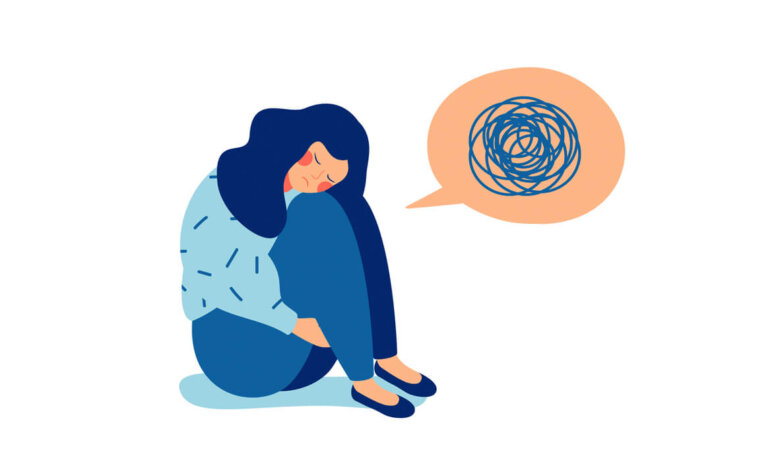How to deal with separation anxiety in relationships

What is separation anxiety?
Separation anxiety is the fear of being separated from a loved one or someone you perceive as a source of safety and connection.
It's normal for anyone to feel lonely or anxious about being away from a loved one, but if it feels uncontrollable or causes great pain, be aware that this is a sign that you need to be careful. Sho.
We will explore the characteristics and causes of separation anxiety, its impact on human relationships, and ways to deal with it.
Characteristics of separation anxiety
These are the characteristics of separation anxiety.
Typically recurrent It is. Separation anxiety as a disorder is typically recurrent and manifests as excessive distress when anticipating or experiencing separation. Injury, illness, injury, accident, abandonment, etc. can cause a person to become persistently and excessively worried about losing someone.
on the spectrum Function. Separation anxiety operates on a spectrum, meaning that some people experience mild symptoms while others experience great anxiety and distress.
to children It is often seen. Separation anxiety disorder is more common in children, but adolescents and adults can also experience it when they are separated from their children, partners, or other family members. Psychiatric health professionals typically look for signs that anxiety is not developmentally appropriate for the person. For example, although young children may show signs of separation anxiety, we would not expect such signs to be prevalent in adolescents or older adults unless we had good reason to do so.
Causes of separation anxiety
Separation anxiety most commonly occurs in people who exhibit an insecure attachment style.
These are the causes of separation anxiety.
genetic factors Separation anxiety has a genetic component, and there is a correlation between anxious parents and high levels of separation anxiety in their children.
environmental factors . Environmental factors may also play a role, such as the death of a parent (separation, divorce, death, etc.), a very chaotic and stressful home, extended parental absence (military deployment, incarceration, abandonment, etc.), or parental conflict. There is a gender.
anxiety disorder . Having a diagnosis of another anxiety disorder, such as generalized anxiety or social anxiety, can be a risk factor for separation anxiety.
Separation anxiety is more pronounced in some relationships than in others. For example, you may be more likely to feel this kind of anxiety in a relationship with a romantic partner than in a relationship with a friend or acquaintance.
Separation anxiety in relationships
In general, relationships are often created in the spirit of providing for the family. As we become more intimate and vulnerable, a deeper part of ourselves emerges, a younger part of us that is closer to our earliest experiences: family.
When we complain about someone in a relationship, we begin to see them as a source of connection, security, and familiarity. Especially if they grew up in a family that subconsciously propagated an insecure attachment style, these feelings become stronger, and they fear losing this relationship and develop separation anxiety.
In other relationships, for example, you may develop connections and friendships with neighbors or store employees, but the vulnerability that leads to separation anxiety is not activated, so you do not have to fear losing the connection with that friend or acquaintance. is.
Effects of separation anxiety
Separation anxiety can cause a variety of symptoms and can put a strain on relationships as well as mental health.
Symptoms of separation anxiety
Here are some symptoms of separation anxiety.
Physical Symptoms For some people, separation anxiety can cause symptoms such as a rapid heartbeat, numbness in the hands and feet, and an overall feeling of anxiety.
Behavioral and Cognitive Symptoms Separation anxiety can cause significant changes in mood (including increased anxiety and depression), concentration, decision-making, or eating and sleeping.
Functional Problems Separation anxiety can also lead to functional problems in some people, such as avoiding leaving the house, having trouble at work or school, or turning to substances to cope.
Below we outline the effects of separation anxiety.
Impact on mental health
When you live in fear, you become more reactive and make decisions from a place of fear and not wanting to lose someone or something.
As a result, we usually make decisions in our heads rather than in our hearts, reacting to imagined negative outcomes in the future. This condition has a major impact on mental health, as it makes it difficult to experience joy, secure connection, and attachment.
Impact on relationships
In any relationship, the more vulnerable you are, the more you experience the connection with the other person, and the more you fear losing them.
But in a healthy relationship, if you learn how to let go and build trust and love, you'll be less likely to get caught up in separation anxiety. This is called interdependence, and it is the ability to have deep connections with others while remaining autonomous.
How to deal with separation anxiety in relationships
Here are some strategies for dealing with separation anxiety in relationships.
recognize the signs First, it's important to talk to a trusted family member, partner, friend, or professional and recognize the signs of separation anxiety.
acknowledge and accept People who are aware of separation anxiety should strive to recognize it as not just separation anxiety, but a deep fear of letting go of a loved one. Acknowledging this or making an effort to accept it is very effective.
sound human being Observe relationships. It is also helpful to observe healthy, interdependent relationships. These examples give us a template for how to relate to our brains and bodies, rather than just understanding codependent and unstable relationships.
believe in one's abilities : When you're apart from your partner, it's important to remember that this has happened before and remember that reuniting with your partner will be special. On the other hand, he also recommends finding meaningful ways to use your time.
Yoga and Let's try meditation. Fight anxiety with physical and mental exercise habits like yoga and meditation.
undergo therapy . In addition to creating a plan to deepen communication with your partner and family, seeking professional treatment such as psychotherapy is also an effective option.
in conclusion
Separation anxiety makes it difficult to be away from loved ones, especially your partner. It causes a variety of symptoms and puts a strain on not only your mental health but also your relationships.
Practicing yoga, meditation, and spending quality time can help you manage your anxiety. However, understanding why these symptoms occur and addressing the deeper layers, such as processing unresolved trauma, is what ultimately leads to true healing from separation anxiety.
This phenomenon is called "acquired secure attachment." In other words, it's something you have to work hard to get, but if you can do it, life, love, and relationships will become much more enjoyable.





